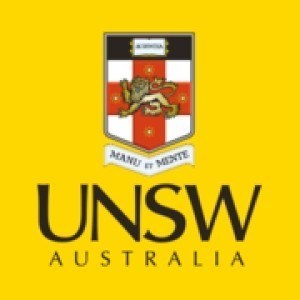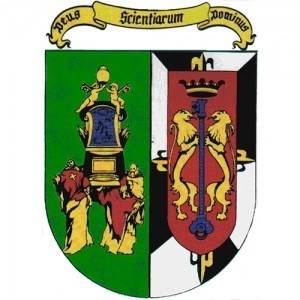Photos of university / #unsw
The Bachelor of Nanoscience at the University of New South Wales offers students a comprehensive education in the emerging field of nanotechnology and nanoscale science. This degree program is designed to equip students with a solid foundation in physics, chemistry, materials science, and biology, all through the lens of nanoscale concepts and techniques. As nanoscience is an interdisciplinary discipline, students will have the opportunity to develop skills in laboratory research, experimental design, and data analysis, enabling them to contribute to advancements in areas such as nanomaterials, nanoelectronics, biotechnology, and energy storage.
Throughout the course, students will explore the fundamental principles governing phenomena at the nanometer scale, gaining insights into quantum mechanics, surface chemistry, and molecular interactions. The program emphasizes hands-on laboratory work, where students will learn to manufacture, characterize, and manipulate nanoscale materials and devices using state-of-the-art instrumentation. In addition, students will undertake projects and research internships that foster critical thinking, problem-solving, and innovation in nanoscience applications.
The curriculum is structured to provide a blend of theoretical knowledge and practical skills, with core courses covering areas such as nanomaterials, nanoengineering, nanofabrication, and microscopy techniques. Elective courses allow students to specialize further in topics like biomedical nanotechnology, environmental nanoscience, or electronics. The program also includes opportunities for interdisciplinary collaboration and industry engagement, preparing graduates for careers in research, development, and commercialization of nanotechnology solutions.
Graduates of the UNSW Bachelor of Nanoscience will be well-positioned to pursue postgraduate studies or enter the workforce in high-tech industries, research institutes, or start-ups focused on nanoscale innovations. The program aims to foster a new generation of scientists and engineers capable of leading technological advances that address global challenges related to health, sustainability, and information technology. With access to UNSW's world-class research facilities and a network of industry partners, students will be supported throughout their educational journey to develop the skills necessary for a successful career in nanoscience and nanotechnology.
Stage 1 (common for all students in the program)
Semester 1
- CHEM1011 Chemistry A (6 UOC) or CHEM1031 Higher Chemistry A (6 UOC)
- PHYS1121 Physics 1A (6 UOC) or PHYS1131 Higher Physics 1A (6 UOC)
- MATH1131 Mathematics 1A (6 UOC) or MATH1141 Higher Mathematics 1A (6 UOC)
- NANO1001 Nanotechnology 1 (6 UOC)
Semester 2
- CHEM1021 Chemistry B (6 UOC) or CHEM1041 Higher Chemistry B (6 UOC)
- PHYS1221 Physics 1B (6 UOC) or PHYS1231 Higher Physics 1B (6 UOC)
- MATH1231 Mathematics 1B (6 UOC) or MATH1241 Higher Mathematics 1B (6 UOC)
- MATS1192 Design & App of Materials (6 UOC)
Students then choose either a Nanodevices or Nanomaterials major, and follow the sequence of study outlined for the chosen major below:
Nanodevices Major
Stage 2 (Nanodevices)
Semester 1
- BABS1201 Molecules, Cells and Genes (6 UOC)
- CHEM2041 Analytical Chem:Essential Meth (6 UOC)
- MATS2003 Materials Characterisation (6 UOC)
- PHYS2111 Quantum Physics (6 UOC)
Semester 2
- BIOC2201 Principles of Mol. Biol (Adv) (6 UOC)
- CHEM2021 Organic Chem: Mech & Biomol (6 UOC)
- NANO2002 Nanotechnology 2 (6 UOC)
- 6 UOC of general education
Stage 3 (Nanodevices)
Semester 1
- CHEM3011 Physical Chemistry (6 UOC)
- NANO3001 Advanced Nanomaterials (6 UOC)
- PHYS3113 Thermal and Statistical (6 UOC)
- 6 UOC of electives below
Semester 2
- NANO3002 Nanomedicine (6 UOC)
- PHYS3118 Solid State Physics (6 UOC)
- 6 UOC of electives below
- 6 UOC of general education
Electives (Nanodevices)
Semester 1
- BABS3121 Molec Biol of Nucleic Acids (6 UOC)
- BIOC2101 Principles of Biochem (Adv) (6 UOC)
- BIOC3111 Molecular Biology of Proteins (6 UOC)
- CHEM3021 Organic Chem: Strats for Synth (6 UOC)
- CHEM3031 Inorg Chem:Trans Metals & Comp (6 UOC)
- CHEM3998 Special Project in Chemistry 2 (6 UOC)
- CHEM6701 Topics in Contemporary Chem A (6 UOC)
- MATH2011 Several Variable Calculus (6 UOC)
- PHYS3112 Experimental Physics (6 UOC)
Semester 2
- CHEM2031 Inorganic Chem: The Elements (6 UOC)
- CHEM3998 Special Project in Chemistry 2 (6 UOC)
- CHEM6041 Analytical Chem: Frontier Tech (6 UOC)
- CHEM6702 Topics in Contemporary Chem B (6 UOC)
- MATH2121 Differential Equations (6 UOC)
- MATS4005 Composites and Functional Mats (6 UOC)
- PHYS3117 Physics Laboratory (6 UOC)
Stage 4 (Nanodevices)
- NANO4004 Nanotechnology Project (18 UOC) taken in semester 1 and 2 for a total of 36 UOC.
- 12 UOC of electives from the list of stage 3 electives for the Nanodevices major.
Nanomaterials Major
Stage 2 (Nanomaterials)
Semester 1
- BABS1201 Molecules, Cells and Genes (6 UOC)
- CHEM2041 Analytical Chem:Essential Meth (6 UOC)
- MATS2003 Materials Characterisation (6 UOC)
- PHYS2111 Quantum Physics (6 UOC)
Semester 2
- CHEM2031 Inorganic Chem: The Elements (6 UOC)
- MATS2004 Mechanical Behaviour of Mats (6 UOC)
- NANO2002 Nanotechnology 2 (6 UOC)
- 6 UOC of general education
Stage 3 (Nanomaterials)
Semester 1
- CHEM3011 Physical Chemistry (6 UOC)
- MATS3001 Mechanical Behaviour of Metals (6 UOC)
- NANO3001 Advanced Nanomaterials (6 UOC)
- 6 UOC of electives below
Semester 2
- MATS3004 Polymer Sci & Engineering 1 (6 UOC)
- NANO3002 Nanomedicine (6 UOC)
- 6 UOC of electives below
- 6 UOC of general education
Electives (Nanomaterials)
Semester 1
- CHEM3021 Organic Chem: Strats for Synth (6 UOC)
- CHEM3031 Inorg Chem:Trans Metals & Comp (6 UOC)
- CHEM3998 Special Project in Chemistry 2 (6 UOC)
- MATH2011 Several Variable Calculus (6 UOC)
- MATS3002 Fundamentals of Ceramic Proces (6 UOC)
- PHYS3112 Experimental Physics (6 UOC)
Semester 2
- CHEM2021 Organic Chem: Mech & Biomol (6 UOC)
- CHEM3998 Special Project in Chemistry 2 (6 UOC)
- CHEM6041 Analytical Chem: Frontier Tech (6 UOC)
- MATH2121 Differential Equations (6 UOC)
- MATS2006 Diffusion and Kinetics (6 UOC)
- MATS3005 Phase Transformations (6 UOC)
- MATS4005 Composites and Functional Mats (6 UOC)
- PHYS3117 Physics Laboratory (6 UOC)
Stage 4 (Nanomaterials)
- NANO4004 Nanotechnology Project (18 UOC) taken in semester 1 and 2 for a total of 36 UOC.
- 12 UOC of electives from the list of stage 3 electives for the Nanodevices major.
- High school degree
- IELTS Academic version only 6.5 overall (min. 6.0 in each subtest)
- TOEFL Internet-based Test (iBT) 90 overall (min.23 in writing, 22 in reading, listening and speaking)
- TOEFL Paper-based Test (PBT) 577 overall (min. 5.0 in TWE)
The Nanoscience program at the University of New South Wales offers a range of financing options to support students throughout their studies. Domestic students may be eligible for government-supported Higher Education Loans Program (HELP), which includes FEE-HELP and HECS-HELP schemes, enabling them to defer tuition fees. Scholarships are also available based on academic merit, financial need, or specific criteria such as research excellence or regional background. These scholarships can significantly reduce the financial burden and are awarded through the university’s scholarship office; applicants are encouraged to submit a dedicated application during the admission process. Additionally, the university collaborates with industry partners and research institutes to facilitate industry-sponsored scholarships and grants for students engaged in nanoscience research projects. International students pursuing the program typically pay tuition fees set annually by the university; they are also eligible for certain scholarships tailored for international students, which can provide partial fee waivers or stipends. Besides scholarships, students can explore external funding sources, including government grants, private foundations, and research councils that support nanotechnology and scientific research initiatives. The program promotes and provides information on work-study opportunities, internships, and research assistant positions, which allow students to earn income while gaining practical experience. Most importantly, students are advised to maintain regular contact with the university’s financial aid office and scholarship services for personalized guidance on funding options, application deadlines, and eligibility requirements. The university encourages early planning for financing, and students are recommended to thoroughly research all available options to make informed decisions that facilitate their academic pursuits without undue financial stress. Overall, the University of New South Wales aims to ensure that motivated students can access quality nanoscience education with adequate financial support, encouraging broader participation in advanced scientific research and innovation.
The Bachelor of Nanoscience at the University of New South Wales is a comprehensive undergraduate program designed to provide students with a solid foundation in the principles and applications of nanoscience and nanotechnology. This degree program offers a multidisciplinary approach, integrating principles from physics, chemistry, biology, and engineering to explore the structure, properties, and manipulation of materials at the nanoscale. Students enrolled in this program have access to state-of-the-art laboratories and research facilities, enabling practical experience and involvement in cutting-edge research projects.
The program curriculum includes core courses in foundational sciences such as physics and chemistry, as well as specialized units focusing on nanomaterials, nanodevices, characterization techniques, and nanoengineering. Students learn about the synthesis and fabrication of nanomaterials, the characterization of nanostructures using advanced microscopy and spectroscopy techniques, and the potential applications of nanoscience in areas including medicine, electronics, energy storage, and environmental sustainability. The program emphasizes both theoretical understanding and practical skills, preparing graduates for careers in research and development, industry, or for further postgraduate study.
Throughout their studies, students are encouraged to participate in collaborative projects, internships, and industry placements to gain real-world experience and build professional networks. The program also encourages engagement with the broader scientific community through seminars, workshops, and conferences. Graduates of the Bachelor of Nanoscience will possess a unique skill set that combines scientific knowledge with technological proficiency, enabling them to contribute to innovations in nanotechnology and related fields.
Career opportunities for graduates include roles in nanomaterials development, quality control and testing, research and development, academia, and entrepreneurship within industries such as electronics, healthcare, energy, and environmental management. The program aims to produce versatile professionals equipped with the scientific understanding and technical skills necessary to meet the demands of an increasingly nano-enabled world. This degree is suitable for students with a strong interest in science and technology, and who are eager to work at the forefront of scientific innovation.










